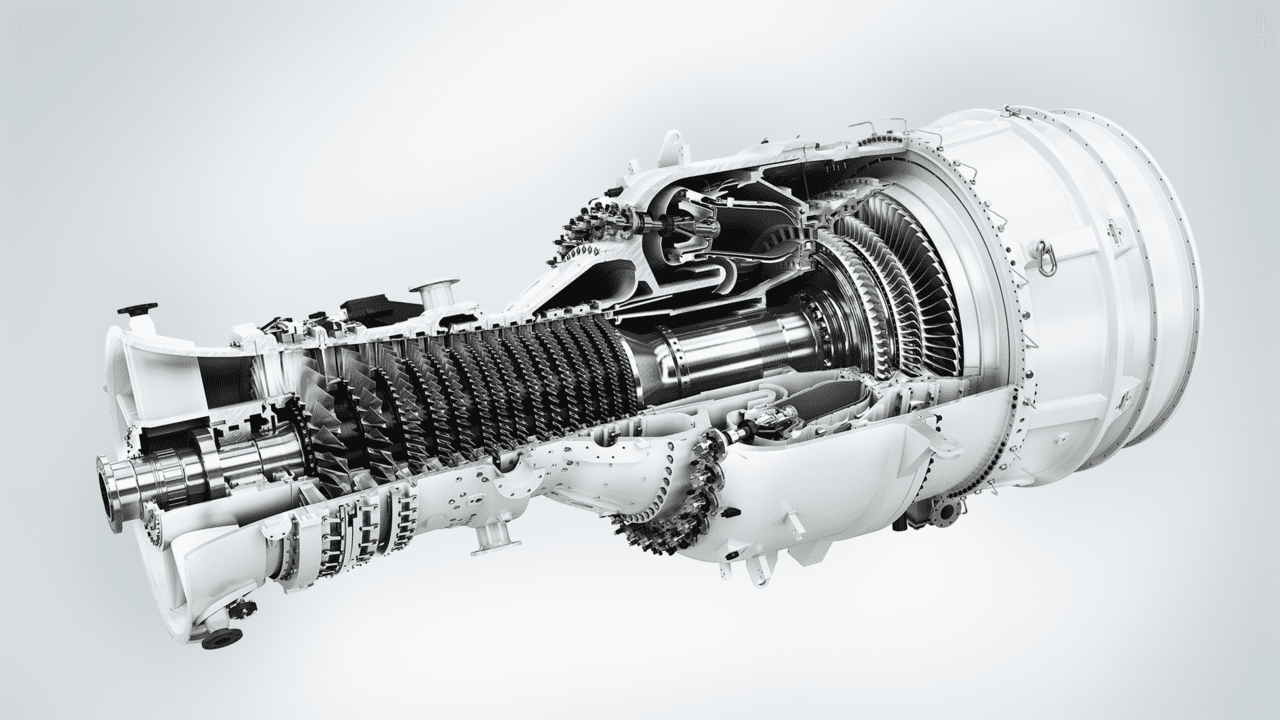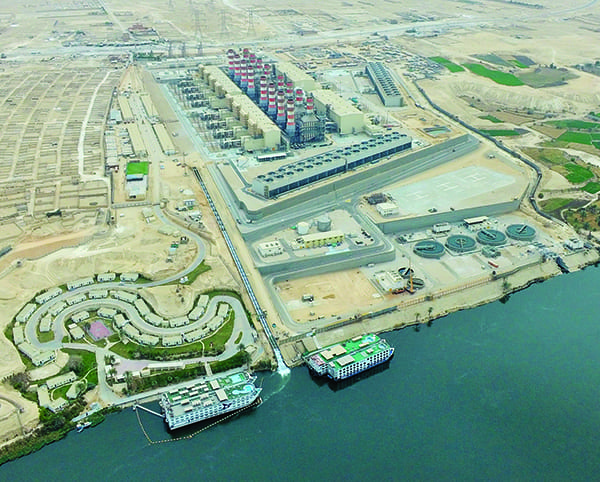The post What Is Siemens Energy? CEO Tells All appeared first on POWER Magazine.

Siemens announced the spinoff of its Power and Gas division on May 7, 2019. It was part of the company’s Vision 2020+ strategy. On Sept. 1, Siemens Energy laid out its post-spinoff plans during a virtual capital market presentation.
Siemens Energy’s Portfolio
Leading up to the event, Christian Bruch, who was appointed CEO of Siemens Energy on May 1, 2020, offered power industry media insight on the company. During the August 27 video conference with reporters, he said, “For me, it’s important that people really understand what we put together here, because it’s a quite unique company in terms of what the portfolio is—what the business is. So, for me, it’s really putting together a leader in the energy industry, which cuts across really from conventional generation to renewables from generation of electricity over transmission to storage or green hydrogen. So, it’s quite a diverse picture.”
Bruch, who came to Siemens after spending more than 15 years with the Linde Group, specifically wanted to highlight Siemens Energy’s position as a world leader in the energy industry. With more than 91,000 employees, Bruch noted that the company has a presence in more than 90 countries. Furthermore, more than one-sixth of global electricity generation is based on the company’s technology. Bruch said he was proud that Siemens Energy holds the first or second market positions in most of its businesses (Figure 1).

“If I start with generation, this is comprising all central and distributed power generation,” Bruch said. “So, this is the big gas turbines, the smaller gas turbines, the steam turbines, everything which we provide around combined cycles, this is the generators. So, this is all elements around really electricity generation.” He noted that, although the company obviously provides new units, a majority of the generation business is service related. “More than 50% of this business is service today,” he said.
Industrial Applications is another business within the Siemens Energy portfolio. Bruch said the division was renamed—it was previously known as Oil and Gas—because it includes much more than most people realized. It includes process industries, such as chemicals (midstream), fibers, and other applications including steel and industrial gases. “What the expertise in this division is really is around electrification, automation, digitalization of rotating equipment,” Bruch said. “We’re not an oilfield services [company], and this is a different setup than let’s say a lot of people perceived us.”
Transmission, which covers everything related to electricity transmission, is another business in the portfolio. Siemens Energy strongly believes that changes in the electricity market are going to favor a lot of its transmission solutions. “I also believe there’s room for new products like grid stabilization and so forth,” he said.
Bruch said the New Energy division is not really a business as such, but rather, a development area. The company has a longstanding history with electrolyzers and fuel cells, and is investing significant money today into “green hydrogen” solutions. Bruch noted that Siemens Energy currently offers the world’s largest operating proton exchange membrane (PEM, also sometimes called polymer electrolyte membrane) electrolyzers, but he doesn’t expect the technology to really take off anytime soon. “We strongly believe it will, in the future, be a pillar of the energy world, but it’s a future. It’s nothing where I do see a commercial business in the next years. It will take quite some time and quite some investments to get these use cases and technologies on the ground.”
Lastly, Siemens Energy holds a 67% stake in Siemens Gamesa Renewable Energy (SGRE). That company is a major supplier of onshore and offshore wind power systems, and also has a strong service component. “The offshore business and the service business has very nicely developed,” Bruch said, while noting that the onshore business has been disappointing. He said an improvement program has been implemented for the onshore segment.
Highly Capable Power Project Developer
Bruch mentioned three major projects Siemens Energy has worked on to highlight the company’s capabilities. He said Siemens Energy has a “unique capability” to take on “complex projects” and “energize societies or electrify whole countries.”
One example is the Egypt Megaproject, POWER’s Plant of the Year award winner in 2019. Completed in a record-setting 27.5 months from financial closure, the project included three plants—Beni Suef (Figure 2, to service Upper Egypt), New Capital (to energize the new administrative center east of Cairo and the strategic area at New Suez Canal Development Zone), and Burullus (to supply the Nile Delta and the Mediterranean coast). The project added 14.4 GW to Egypt’s power grid.

“Egypt has been a particular relevant one with a €3.7 billion contract, which was really executed in record time. It made Egypt from an electricity importer to an electricity exporter,” Bruch said.
Bruch also mentioned work the company has done in Iraq. In April 2019, Siemens signed a “roadmap implementation agreement” with the Iraqi government. Phase 1 of the roadmap included an engineering, procurement, and construction contract for a 500-MW gas-fired power plant in Zubaidiya; the upgrade of 40 gas turbines with upstream cooling systems; and the installation of 13 substations and the supply of 35 power transformers to strengthen the country’s electricity transmission and distribution network.
Siemens also completed significant work in Bolivia. In October 2019, the company announced that it had completed the expansion of three thermal power plants there: Termoeléctrica del Sur, de Warnes, and Entre Ríos. The three plants were already equipped with 13 Siemens gas turbines and associated generators which operated in simple cycle mode. During the expansion phase that began in 2016, Siemens added 14 SGT-800 gas turbines, 11 SST-400 steam turbines with condensers, 22 steam generators, and SPPA-T3000 instrumentation and control systems to the three power plants. With the changes, plant efficiency increased from 40% to 51% in combined cycle mode, the company said.
“The capability to do these type of projects gives us an opportunity to leverage really our capabilities across the divisions,” said Bruch.
The Future of Gas Turbines
When asked about the prospects for gas turbine projects and how hydrogen will factor into the future, Bruch was optimistic. “I am a strong believer [that] natural gas is going to remain a pillar of the energy industry over the next decades to come. There’s no question around it. With all the transformation ongoing, the growth ongoing, there will be no way around natural gas. And I believe in terms of the units in the market, we see it stabilizing, and we believe this is also [a] level from which we will not further [be] going down. The question is, okay, ‘Where exactly are we going to land?’ But I’m quite confident that we can, on this level, really provide some business, which is nice for us,” he said.
Concerning hydrogen, Bruch noted that Siemens Energy’s SGT-600 and SGT-800 gas turbines can operate satisfactorily today using about 60% hydrogen, and some of the company’s smaller turbines are already 100%-hydrogen capable, but he said the percentage is less important than the flexibility it provides. “I’m not yet sure how many units we’re going to see ever with 100% hydrogen,” he said. “It’s about providing the flexibility, because nobody can predict the energy future.”
—Aaron Larson is POWER’s executive editor (@AaronL_Power, @POWERmagazine).
The post What Is Siemens Energy? CEO Tells All appeared first on POWER Magazine.